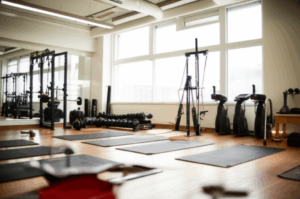We’ve all been there: staring at our workout clothes with a sigh, dragging ourselves to the gym, or forcing ourselves out the door for a walk. The motivation might be fleeting, the effort feels like a chore, and sometimes, it feels like we’re just going through the motions – an “act” of exercising. But what if that “act” is precisely what you need? The truth is, whether your commitment to physical activity stems from deep-seated passion or a sheer act of will, the incredible benefits to your physical and mental health are very real and profoundly impactful.

Why Showing Up Matters: Immediate and Long-Term Gains
The scientific evidence is overwhelming: consistent physical activity, regardless of initial enthusiasm, contributes significantly to a healthier and happier life. Regular exercise can reduce your risk of major illnesses by up to 30% and even lower your risk of early death. It’s a powerful tool for overall well-being.
Bolstering Your Physical Health
Exercise is a cornerstone of physical well-being, offering a multitude of benefits that extend far beyond aesthetics:
- Weight Management: Physical activity burns calories, playing a crucial role in preventing excess weight gain and aiding in weight loss. The more intense the activity, the more calories you burn.
- Heart Health and Circulation: Regular exercise strengthens your heart and improves circulation, leading to increased oxygen levels in your body. This helps reduce the risk of heart diseases such as coronary artery disease and heart attack. It can also lower high blood pressure, cholesterol, and triglyceride levels.
- Disease Prevention and Management: Consistent physical activity can significantly reduce the risk of developing chronic conditions like type 2 diabetes, certain cancers (including bowel, breast, bladder, kidney, lung, and stomach), stroke, and metabolic syndrome. For individuals already managing conditions like arthritis, exercise can help reduce pain and improve function.
- Stronger Bones and Muscles: Exercise is vital for building and maintaining strong muscles and bones, which is particularly important as people age to reduce muscle loss and maintain strength, helping to prevent conditions like osteoporosis.
- Boosted Energy Levels: Regular physical activity can combat fatigue and significantly increase your energy levels. It improves muscle strength and endurance by delivering more oxygen and nutrients to your tissues and enhancing cardiovascular system efficiency.
Enhancing Your Mental and Emotional Well-being
Beyond the physical, exercise delivers a profound boost to mental health, often providing relief comparable to other treatments for conditions like depression and anxiety.
- Mood Enhancement and Stress Reduction: Physical activity stimulates the production of “feel-good” brain chemicals, such as endorphins, serotonin, and norepinephrine, which can lead to feelings of happiness, relaxation, and reduced anxiety and stress. Even short bursts of activity, like a brisk walk, can improve mood.
- Improved Sleep Quality: Exercise can lead to better sleep, which in turn helps manage mood and overall mental well-being. It helps regulate your circadian rhythm, the body’s natural sleep-wake cycle.
- Increased Self-Esteem and Confidence: Achieving fitness goals, no matter how small, can significantly boost self-confidence and self-esteem.
- Sharper Cognitive Function: Exercise can improve memory, concentration, alertness, and overall cognitive function. It stimulates the growth of new brain cells and can help prevent age-related cognitive decline, and some studies indicate it may reduce the risk of dementia.
- Better Stress Coping Mechanisms: Exercise provides an outlet for frustration and can help the body’s systems better manage the “fight or flight” response to stress, leading to a more resilient physiological response.

The Power of Consistency Over Initial Motivation
The sentiment “Who cares if it’s all an act?” actually highlights a crucial aspect of exercise: consistency triumphs over perfect motivation. You don’t need to be a fitness fanatic to reap the benefits. Any amount of activity is better than none, and simply incorporating more movement into your daily life can make a significant difference.
For example, taking the stairs instead of the elevator, or revving up your household chores, can contribute to your activity levels. Even 10 minutes of moderate-to-vigorous physical activity more a day can prevent an estimated 110,000 deaths per year in U.S. adults aged 40 and older. Experts recommend adults aim for 2.5 to 5 hours of moderate physical activity or 1.25 to 2.5 hours of vigorous physical activity per week.
Whether you’re exercising for the “gram,” for a fleeting burst of endorphins, or out of a disciplined routine, the critical takeaway is that your body and mind will still reap the rewards. The “act” of showing up, day after day, builds momentum and compounds benefits that can genuinely transform your health and quality of life. So, embrace the “act”—your future self will thank you for it.







